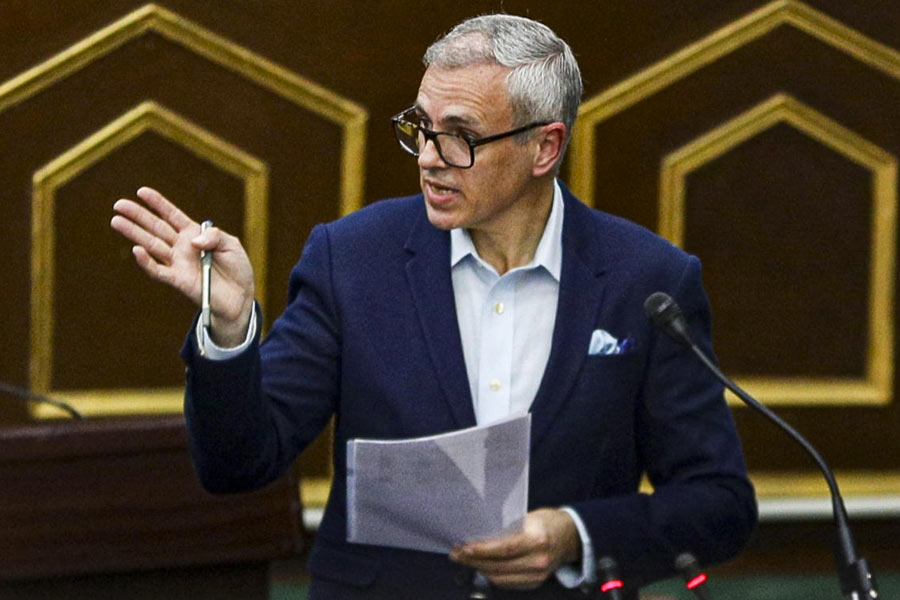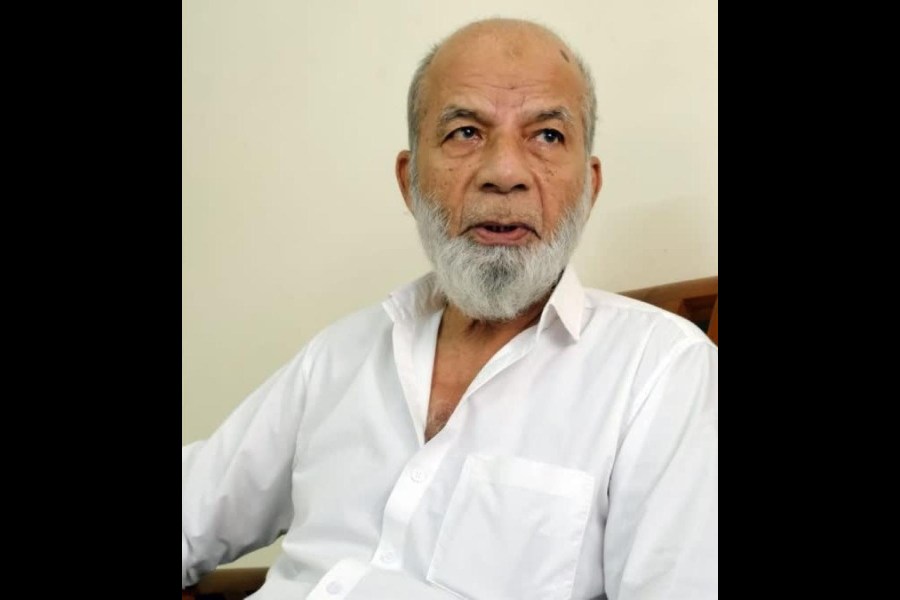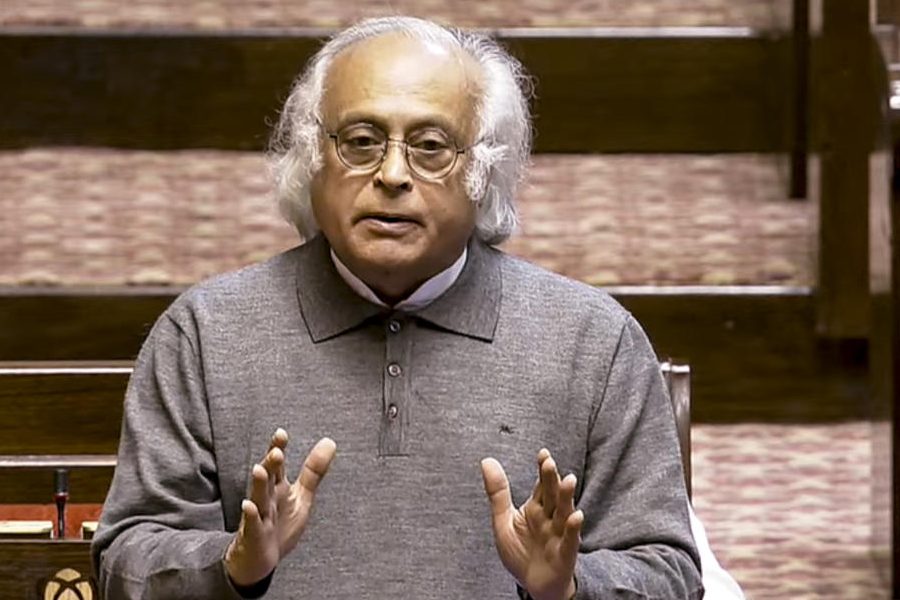 |
| (From left) Gangesh Gunjan, Amulya Barman and Baldev Vanshi release the special issue of Ulupi in Guwahati on Friday. Picture by Eastern Projections |
Guwahati, Jan. 8: It takes courage to answer the threat of bullets with words.
The Hindi translation of a collection of works by one of Assam’s most influential writers, Sheelabhadra, was released in a special issue of a Hindi magazine, Ulupi, here today, barely two days after Ulfa “commander” Paresh Barua threatened all those who helped in the spread of Hindi in Assam.
For those behind the magazine — all Hindi-speaking people from north India who have settled in the land of the Red River — it was an immense love for the state they have made their home which prompted this effort.
This tribute to Sheelabhadra — the pen name of late Rebati Mohan Dutta Choudhury — undoubtedly started much before the Ulfa threat. But the timing of the release of the quarterly magazine’s special edition could not have been more symbolic.
In a statement, which contained the threat against the spread of Hindi, Paresh Barua had also identified all Indians as “foreigners” who have encroached on the land of the indigenous people.
But literature — like the people of the country — is not constrained by geographical distance. Gangesh Gunjan, a Sahitya Akademi award-winning Maithili writer, pointed this out during the function: “As I was reading one of Sheelabhadra’s short stories on a father-son tussle, I suddenly realised that this story could very well be set against the backdrop of Bihar. That is the great beauty of good literature. People of the world can identify themselves in the characters,” Gunjan said.
Asam Sahitya Sabha president Rong Bong Terang had consented to release the special edition but he could not attend the function, as he had to rush to Duliajan on personal work.
The special edition was released jointly by Gangesh Gunjan, poet Baldev Vanshi and reader in the Hindi department of Cotton College, Amulya Barman.
Ulupi, founded in 1997, has been the torchbearer in translating Assamese literature into Hindi and popularising it among the Hindi-speaking people across the country.
The name Ulupi has its origins in the Mahabharat where she is a Naga princess who marries Arjun. As the editor of the magazine, Ravi Shankar Ravi, said, “Ulupi was a tribal girl and Arjun was an Aryan. Ulupi, the magazine, reflects the synthesis between the two cultures.”
Interestingly, the life of Rebati Mohan Dutta Choudhury — who passed away in 2008 at the age of 84 — was in itself a synthesis of two cultures. Born at Gauripur in Dhubri district, Dutta Choudhury had faced jeers early in his career for his accented Assamese, the result of his roots at a place closer to Bangladesh.
It was those comments which prompted his literary career at the age of 40, but by the time he was into his second or third short story, Assam had discovered a literary genius with a simple style of story-telling which was unmatched.










